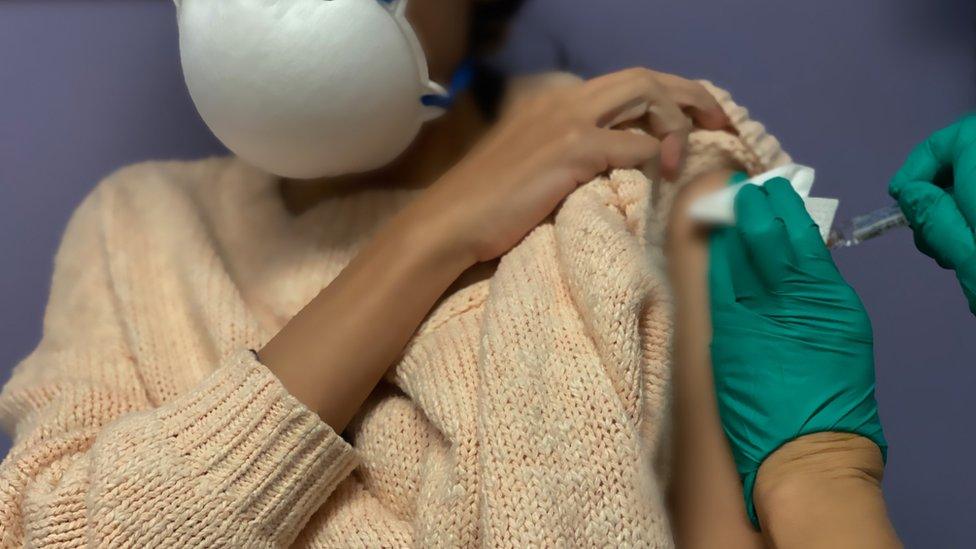Covid vaccine should be offered to vulnerable five to 11-year-olds
- Published
- comments
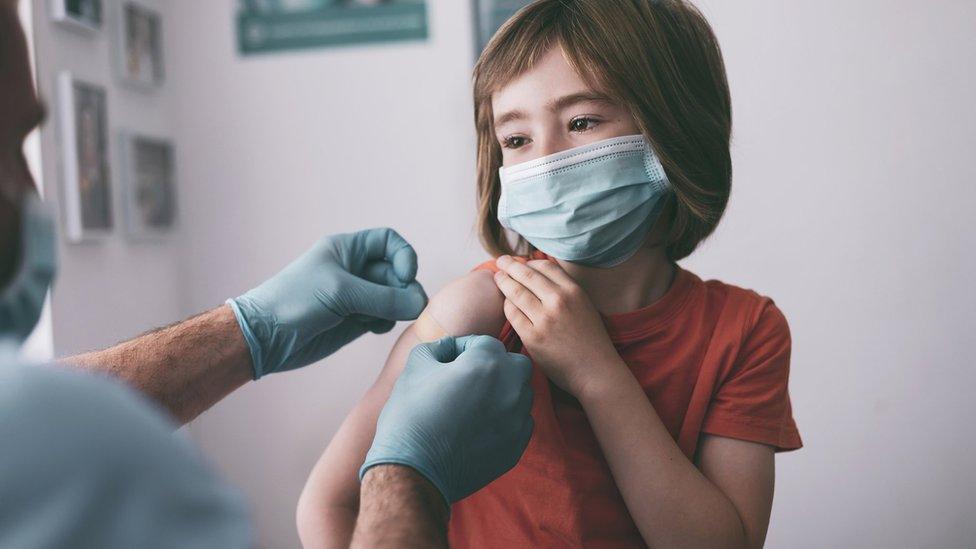
The group of scientists who advise the government on vaccines in the UK, have said that vulnerable primary school children should be offered a low-dose version of the Covid vaccine.
They also say some older children should be offered a booster in response to the Omicron variant.
The group - called the JCVI - have made the recommendation, but it has to be officially approved by ministers in England, Scotland, Wales and Northern Ireland before any vaccines are actually given.
The Joint Committee on Vaccination and Immunisation (JCVI) is an independent group that advise the government on health and vaccines in the UK.
Ministers in England, Wales, Scotland and Northern Ireland all take on board their recommendations and then approve the plans.
The JCVI have said the vaccine should be limited, for now, to five to 11-year-olds who are clinically vulnerable, due to conditions such as heart and lung diseases.
About 330,000 children in the UK would be eligible.
Prof Wei Shen Lim, from the JCVI said: "Some five to 11 year olds have underlying health conditions that put them at higher risk, and we advise these children to be vaccinated in the first instance.
"For children and young people who have completed a primary course of vaccination, a booster dose will provide added protection against the Omicron variant."
Clinically vulnerable means those who are at greater risk of becoming seriously ill or needing hospital treatment with coronavirus - usually because of an underlying medical condition.
What does a low dose mean?
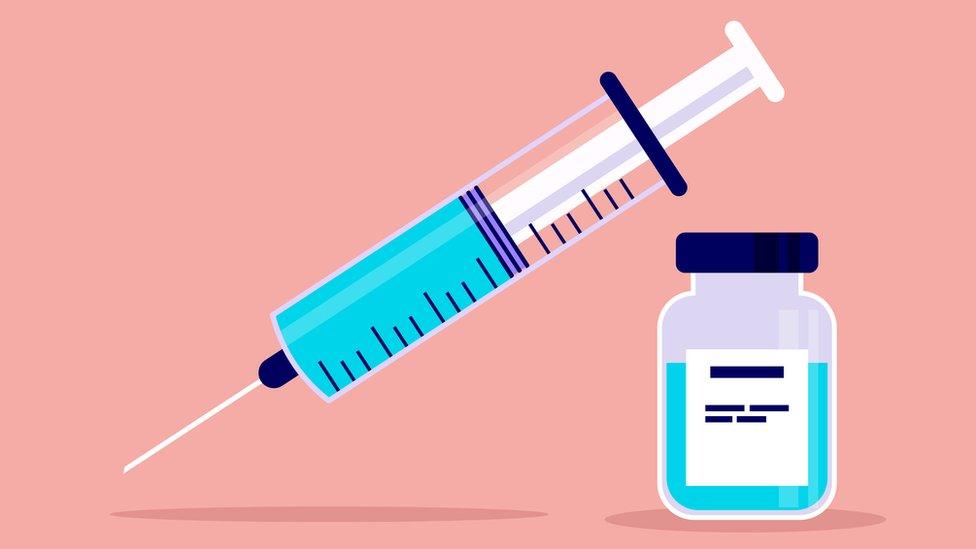
A low-dose version of a Covid vaccine for five to 11-year-olds has been approved for use in the UK after being deemed safe and effective.
The low-dose vaccine by Pfizer-BioNTech contains one-third of the adult dose and the jabs should be given eight weeks apart.
It is widely used in other countries and more than five million children have been given it in the US alone.
WATCH: Dr Xand explains how vaccines work (June 2021)
Another important group, the people who decide if medicines are safe in the UK - the Medicines and Healthcare products Regulatory Agency (MHRA) - has licensed the vaccine for use.
Dr June Raine, chief executive of the MHRA, said: "Parents and carers can be reassured that no new vaccine for children would have been approved unless the expected standards of safety, quality and effectiveness have been met."
She said the overwhelming majority of side effects were mild, such as a sore arm or a flu-like illness.
Will all children be offered the vaccine?
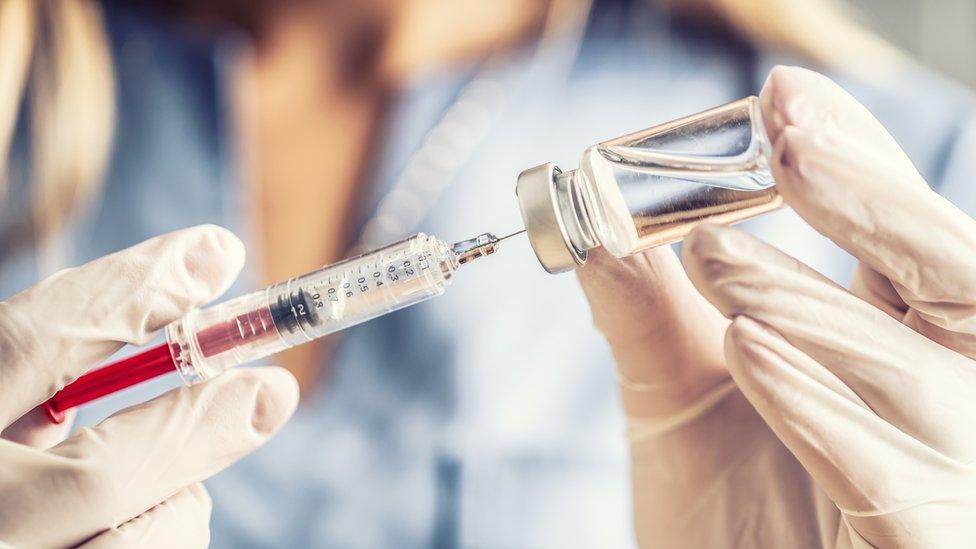
A decision on vaccinating all five to 11-year-olds has not yet been made.
There's been lots of discussion about whether children in the UK should be offered the coronavirus vaccine.
Scientists have been trying to work out whether it's worth giving the vaccine to all children when the risk of healthy children becoming seriously ill from Covid is very low.
It is expected the priority for the NHS will remain on giving adults their third or booster dose of a Covid vaccine.
A wider decision on vaccines for children will be made in the New Year.
What else did the JCVI say?
The JCVI also recommended the normal booster dose should be offered to:
Children aged aged 16 and 17.
Children aged 12 to 15 if they are in an at-risk group or live with someone who is vulnerable.
Children aged 12 to 15 who have a severely weakened immune system, who should get four doses.
Vaccines: What are they and how can they help fight Covid-19?
What if I'm scared of needles?
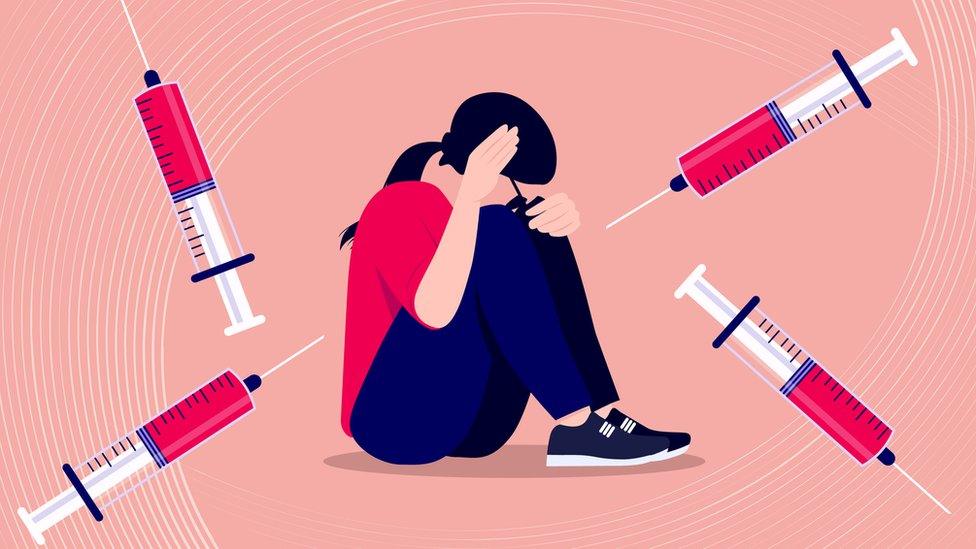
A fear of needles is really common and nothing to be embarrassed about.
The NHS says that one in 10 people are thought to be scared of injections.
There are a few things you can do to manage that fear if you ever have to have one:
Tell the person who is giving you the vaccine about your fear - they will usually have some great advice on how to make the injection less scary for you
Make sure you have something fun to distract you before your injection - your favourite book, a game on your phone or maybe listen to some music
Take long, deep breaths - breathe in for 5 seconds, hold that breath for 3 seconds and then breathe out slowly - this should slow your heart rate and make you feel more calm
If you feel faint, let someone in charge know so they can help you
- Published16 December 2021
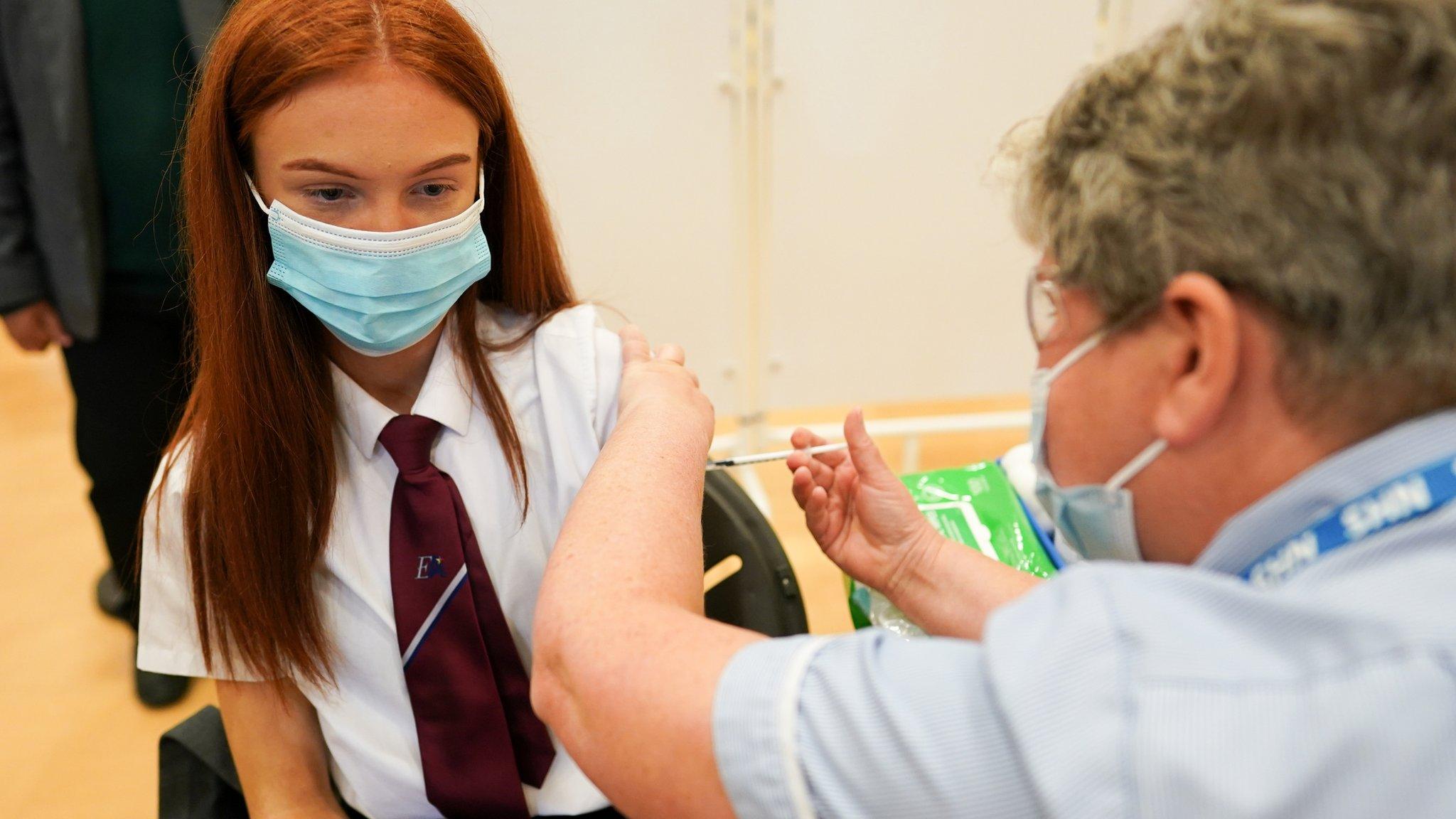
- Published20 September 2021
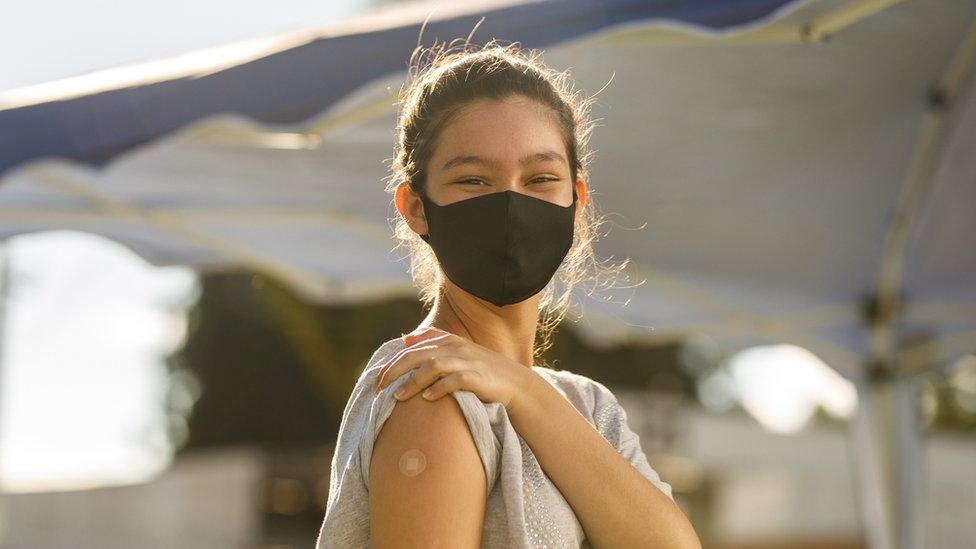
- Published24 November 2020
